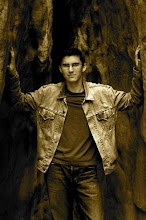The Proposition takes the conventions of the American western and transports them to an Australian setting. It’s authentic western, however, which means it is primarily a character study. The authentic western has always been concerned with showing how men – and women – live on the edge. The Proposition is takes place on the frontier, that historical and mythic place where civilization and nature meet. This is a dusty, desolate, and violent world where nothing is fully wild or fully civilized. For those living on the frontier, there is the world ahead of them, the world of the aborigines who live in peace with nature. But there is also the world behind them, the civilized world where people live in peace with culture (and one another). What The Proposition tries to do is show how people live in the gap between these two worlds. Captain Stanley tries to bring justice to it, but by making his proposition to Charlie he violates the system he represents. His wife Martha (Emily Watson) tries to bring domesticity to it, but the sight of her rose garden surrounded by the desolate outback makes us realize how futile this effort really is. Charlie tries to live on the edge, but slowly gets drawn into his older brother’s psychopathic grip. Only Arthur seems to be able to live effectively in this wasteland, but his days are numbered.
While reading his review, I was pleased to see that Roger Ebert found similarities between the The Proposition and Cormac McCarthy’s novels. To me, there is a strong connection between The Proposition and No Country For Old Men. Both stories focus on people trying to live in a savage, violent place, alternating between images of poetical beauty and blunt, mind-numbing violence. I suppose this is what remains of the western once the myths are gone.
For me, The Proposition was a great film with one problem: its brevity. It sets up an incredible situation, and then carries us through it so quickly that we barely have enough time to process it all. The ending is very fitting, because it establishes a contemplative mood (“What will you do next?”). Contemplation and unanswered questions are what this film leaves us with.
But that’s not necessarily a bad thing…
The always reliable Guy Peace
Ray Winstone...without his CGI-generated Beowulf body here.

Samuel Stote: What's a misanthrope?
Arthur Burns: A misanthrope is one who hates humanity.
Samuel Stote: Is that what we are misanthropes?
Arthur Burns: Good lord, no. We're a family.
Conclusion: Despite its brutal violence, The Proposition is a "quiet" film because ultimately, it isn't about "action" but contemplation. It contemplates the actions people have to perform in order to survive in a cruel, chaotic world.



No comments:
Post a Comment